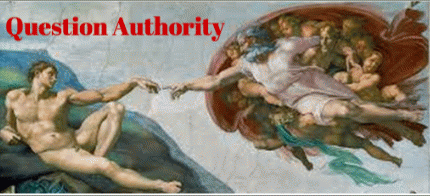We live in paradigm breaking times when old ideas are routinely disrupted, broken, overturned and replaced. A responsible culture will teach its children to develop skills in challenging any assumptions, questioning authority, questioning existing power structures and paradigms. That is the ideal way to prepare them for a future that is changing at an accelerating rate that is faster than ever before in the history of humanity.
Civilization began between ten and twelve thousand years ago, when people began staying in one place to farm or domesticate animals. One of the first developments of civilization was ownership of land, along with the police and armies to protect the land and the surplus food and resources developed there. These police and armies led to hierarchical control of the culture.
But keep in mind, the first civilizations were outliers for most of humanity for another 10-11,600 years. it was not until the industrial revolution that most of the world gave up indigenous culture for civilization. From its inception, it took over 10,000 years for civilization to become the dominant form of culture in the world-- after somewhere between 2.8 and five million years of humans and their predecessors living in tribal and band indigenous cultures.
So, for most of the world, the idea of ownership is a few hundred years old. While in parts of the world armies have existed for several thousand years, there were big parts of the world where armies had never been seen as recently as 300-500 years ago. Corporations and industrialization have only existed for a few hundred years and capitalism is an even newer phenomenon. All of civilization and its manifestations-- ownership, police, armies, hierarchy, domination, corporations, capitalism-- have existed for a mere blip in the timeline of humanity. They could just as easily disappear completely, replaced by who knows what.
Yes, people speak of civilization as the ideal, best, most desirable way. But most people are like fish in water, never having experienced anything else. If you strive to rise above in-the-water consciousness it is not difficult to see the system as it is-- a predatory system where the few extract wealth and resources at the cost of the many and the ecosystem. it is a system designed to create inequality, poverty, scarcity, and in it's worst extractive mode, death and destruction as fear, xenophobia, intolerance, machismo, anger and narcissism are used to stoke wars without end.
There are certainly positive benefits of civilization, like surplus food that allows people to specialize and not have to farm or hunt. But there are also serious liabilities that it every person on the planet should be taught to consider-- to raise her head out of the proverbial water-- to question every aspect to challenge whether the current way is the best way for the planet, for the ecosystem, for the most people.
Questioning civilization should be taught in school starting with the earliest age, along with teaching how to question authority. Every child should be taught by school, religious institution and parent to challenge assumptions, dogmas and doctrines. Failure to teach children such ways to think should be considered failure to educate, even a form of child neglect. Actually teaching children to accept or embrace authority, without question should be considered child abuse.
Who will challenge this idea of questioning everything, and teaching children to question everything and challenge authority?
Authoritarian people-- most of whom have been inculcated to need domination
I'm curious what objections will be raised to this idea. if you have any, or you think you have an idea how opponents would justify opposition, please comment.






